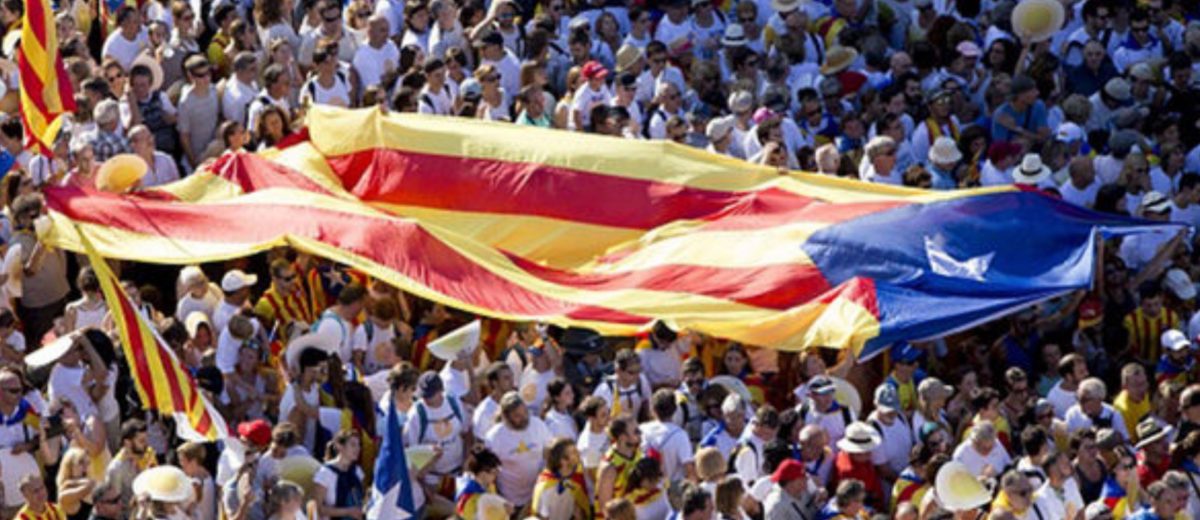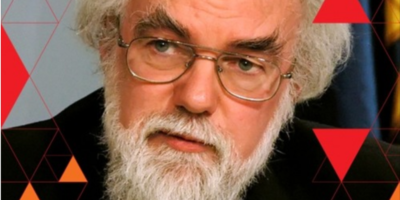A very divided Spain is facing a serious constitutional crisis which could lead to the end of that nation as we know it.
From a distance, it can be hard to know which side to support: the struggle of the ‘underdog’ Catalonia to free itself from ‘oppressive’ control from Madrid, or a ‘legitimate national parliamentary democracy’ whose responsibility it is to uphold the rule of law?
We are used to watching FC Barcelona clash with rival Real Madrid, but this contest is no game. Madrid’s use of security tactics reminiscent of Franco’s fascist days earned itself a yellow card last weekend in the eyes of many. The two sides have moved beyond dialogue and argument to polarisation.
Catalonia is itself very divided. While over two million voted for separation last week, most voters boycotted the unauthorised referendum. They took their stand at yesterday’s huge unity rally.
Populism has largely silenced reason and trounced moderates, says Francisco de Borja Lasheras, of the Madrid office at the European Council on Foreign Relations. Populist influence over Catalan power has led to a rise of hate speech.
He warns against condemning nationalism elsewhere yet falling into the romantic trap of ‘Catalan nationalism and its Trumpesque post-truth’. A declaration of Catalonian independence, he says, would abridge other Catalans’ rights, not to mention those of other Spaniards.
Case study
The reluctance both the Spanish and Catalonian leaders to heed their own minorities makes the situation a case study of Rowan Williams’ concern, as we wrote about last week, that a moral democracy had to make room for argument and persuasion.
With the president of the Catalonian regional government threatening to declare independence, the crisis is coming to the boil.
Two of my Spain-based colleagues offer the following perspectives:
• Curtis Clewett in Barcelona:
The two leaders in question, Mariano Rajoy, national president, and Carles Puigdemont, president of the Catalán regional government, have taken unmovable and opposite positions. The conflict has changed from normal political bickering and negotiation into deep intercultural wounds and potential violence as the central government contemplates revoking all Catalán institutions (parliament, police force, finances) while the Catalán president is contemplating a unilateral declaration of independence on Tuesday. This would all be a farce if it weren’t for tens of thousands of security forces who have converged on Catalunya. An historic quarrel has spiraled into a potential divorce with each “parent” claiming the high ground while neglecting the potentially devastating impact on those they serve. Interestingly, neither Mariano Rajoy nor Carles Puigdemont have a solid electoral majority. Pray for the peace of our region and for clear and serene voices to prevail.
• Gary McKinney in Madrid:
The region of Catalonia has never existed as an independent political entity. There is no “union”, as in the UK. Catalonia is to Spain what Rousillon is to France or Cornwall to England.
Spain is parliamentary democracy, with a constitution that can be amended. A vote on territorial secession would require such amendment and the support of a qualified majority of Spaniards. In the last regional election, pro-secession parties decided to unite around a single issue–independence–and not only failed to win a majority of the vote, but also they lost votes relative to the prior election. Polls, even those paid by the separatists, show support for independence is a minority and in decline.
Catalonia is not “oppressed”. It is one of the most prosperous regions in Spain and its citizens enjoy a high standard of living and one of the highest degrees of self-rule of any region in Europe.
So why the fuss? As the economy improves and support for independence wanes, the separatists are afraid of “missing the train” and, breaking Spanish and regional laws, have embarked on a campaign to present the central government, as “evil” for not allowing a regional referendum which does not comply with the constitution (overwhelmingly approved throughout Spain, including Catalonia).
Yet not only the Catalonian government is to blame. The central government has allowed the independence movement to thrive by not being politically smart with the application of the rules and law and giving them power when convenient, and not worrying about long term consequences.
Some of us may be tempted to push all these ‘worldly’ concerns out of our consciousness. After all, it’s all part of a world that is doomed to pass away, right?
Forget the Lord’s Prayer then. For there Jesus taught us to pray for God’s reign to come, that is, for his will to be done on earth, in Europe, in Spain and in Catalonia.
Again, as Williams reminded us, democracy involves a view of community akin to the Body of Christ, where when one part suffers, all suffers.
We should all be feeling the pain in Spain.
Till next week,



